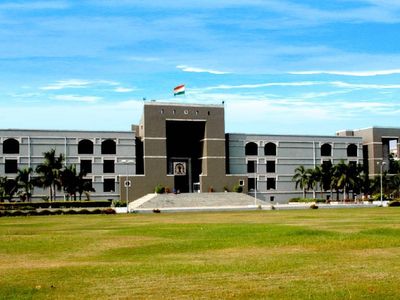The court laid down a detailed judgement on restricting the Rath Yatra procession after two PILs were filed in June. First by Hitesh Chavda, represented by his advocate Mr Aum Kotwal and second by Ramesh Marand represented by Nandish Thacker.
Rath Yatra is a famous hindi festival which attracts pilgrims from all over. It is a procession in a chariot with deities Jaganath, Bala Bhadra, and Subhadra on it. But with the ongoing situation of Covid19, serious concerns were put forward in the PIL regarding the 143rd Rath Yatra procession in Ahmedabad and interim relief by disallowing the procession was seeked from the court.
In its judgement on July 7, 2020, the court observed that-
” It is the duty of the welfare state to provide legal safeguard to protect individuals life and to maintain good health of the community.”
It also said-
“While it is emotional to see these cultural festivals not be celebrated, there is nothing more important than the safety and health of our people.”
Despite the Government trying to seek permission for the procession to be allowed with taking necessary precautions under the argument that the court can’t compare Rath Yatra in Puri, Orissa which is at much larger scale than that of Ahemdabad; the court had upheld it’s stay on the Rath Yatra procession and passed an order through a rare midnight hearing hours before the Rath Yatra on June 23rd.
It also asked the senior officials including Ms. Sangeeta Singh, Additional Chief Secretary (Home), Government of Gujarat and Shri Ashish Bhatia-the Police Commissioner of Ahmedabad to provide the court with explanation on the reason for delay in taking necessary decision regarding the Rath Yatra procession even after a month’s time after an application was submitted by the Jaganath Temple Trustees asking for permission to hold the procession.
Later the officials in their affidavit submitted to the court said that they were trying to reach to a middle ground with the temple trustees regarding not conducting the Rath Yatra in the traditional manner this time. Therefore, various officers visited the temple trustees to come up with a consensual decision regarding the same.
The court while showing its disappointment towards passive and yielding approach of the State Government and it’s incapacity to come up with a stern decision by cancelling the Rath Yatra procession said-
“The Government chose to follow a policy of appeasement and coaxing to convince the religious leaders, temple authorities and organizers connected with Shri Jagannath Rath Yatra to avoid holding the Rath Yatra processions.”
During these serious times where public health is at stake,
“We need action. Strong, pragmatic and robust action. “, it said.
The court also tried to put a clear message across through its judgement that-
“The government cannot and should not follow a policy of appeasing the cultural and religious heads. This is not the time to sit, negotiate and persuade.”
In the recent months with the cases of COVID-19 being at a drastic rise , the court observed that-
“We emphasize upon the need to prioritise protection of public health over religious expression.” It said in these critical times. There is no need to consult or discuss anything relating to the religious practices with the religious leaders, etc. at the cost of public health.”
The court while restraining the Rath Yatra procession organised by Shri Jagannath Mandir Trust pointed out that it is disappointing that this litigation had to reach the court in the first place and observed-
“The decision as to whether the Rath Yatra or any other religious procession should be permitted or not is a matter which predominantly falls within the domain of the executive wing of the State Government.”
It said that while making that assessment the court shall keep in mind the prevailing circumstances.
Ultimately, it held that-
“By avoiding a large gathering of people on the day of the Rath Yatra, we avoided a major catastrophe that could have completely derailed the State Government’s fight against COVID19. “
The copy of the judgment can be accessed Click here

